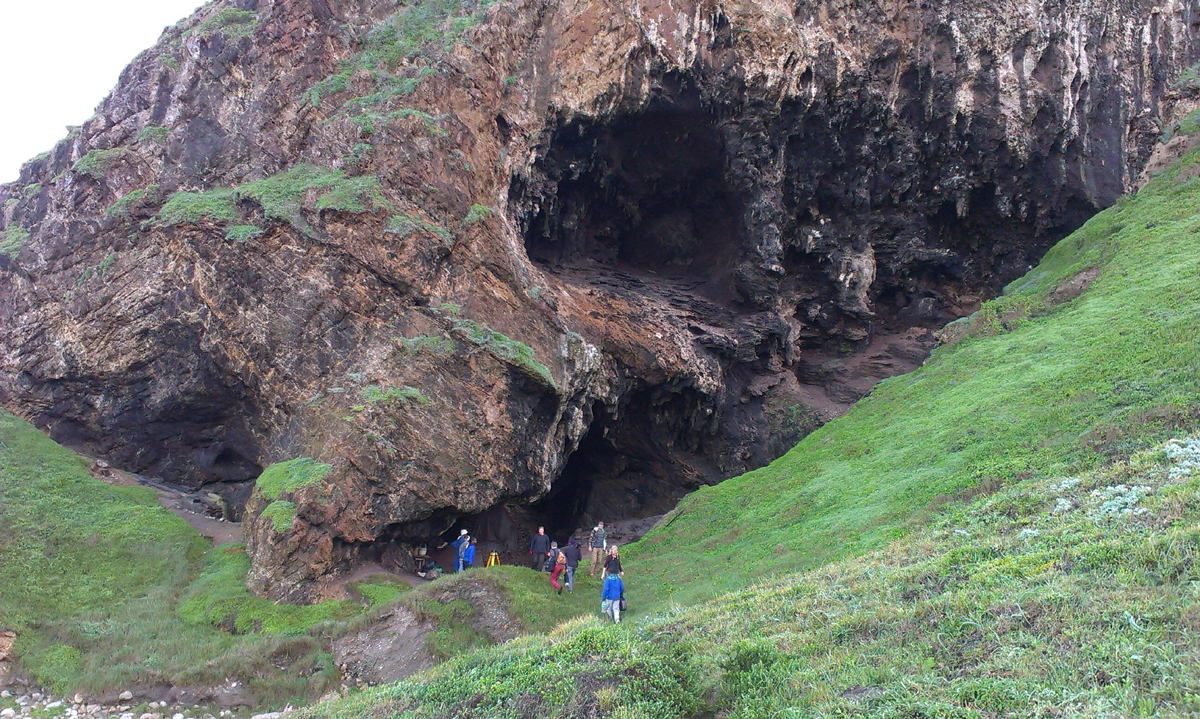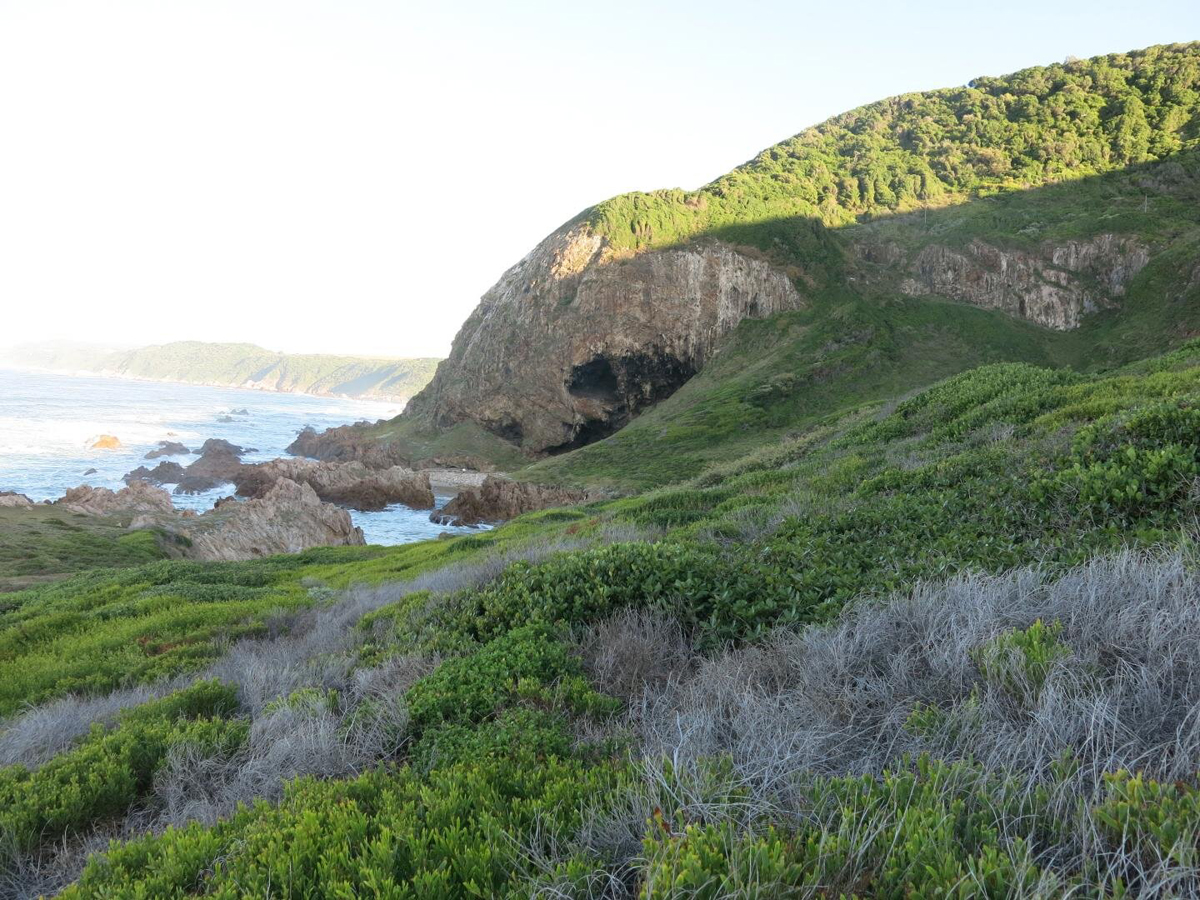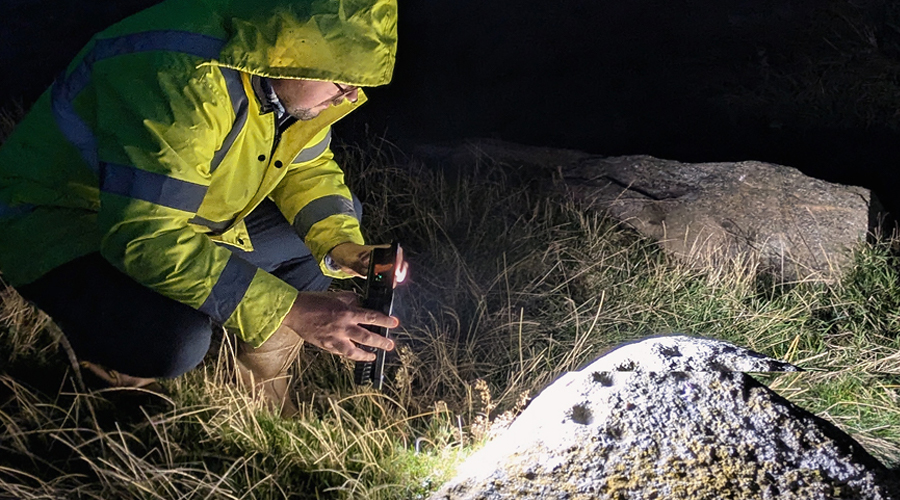


An article by Wits University on phys.org - Earliest evidence of the cooking and eating of starch - reports on the new discoveries of charred food remains from hearths found at the Klasies River Cave in South Africa's southern Cape. They provide the first archaeological evidence that anatomically modern humans were roasting and eating plant starches, such as those from tubers and rhizomes, as early as 120,000 years ago.

The new research by an international team of archaeologists, published in the Journal of Human Evolution, provides archaeological evidence that has previously been lacking to support the hypothesis that the duplication of the starch digestion genes is an adaptive response to an increased starch diet. Lead author Cynthia Larbey of the Department of Archaeology at the University of Cambridge explains that the genetic and biological evidence previously suggested that early humans would have been eating starches, but this research - investigating the role that plants and fire played in the lives of Middle Stone Age communities - had not been done before.
The interdisciplinary team searched for and analysed undisturbed hearths at the Klasies River archaeological site. The results showed that the small ashy hearths were used for cooking food and starchy roots and tubers, which were clearly part of their diet, from the earliest levels at around 120,000 years ago through to 65,000 years ago. Despite changes in hunting strategies and stone tool technologies, they were still cooking roots and tubers.

Professor Sarah Wurz from the School of Geography, Archaeology and Environmental Studies at the University of the Witwatersrand in Johannesburg, South Africa (Wits University) and principal investigator of the site says the research shows that "early human beings followed a balanced diet and that they were ecological geniuses, able to exploit their environments intelligently for suitable foods and perhaps medicines".
By combining cooked roots and tubers as a staple with protein and fats from shellfish, fish, small and large fauna, these communities were able to optimally adapt to their environment, indicating great ecological intelligence as early as 120,000 years ago.
Klasies River is a famous early human occupation site on the Cape coast of South Africa, excavated by Wurz, who, along with Susan Mentzer of the Senckenberg Institute and Eberhard Karls Universitaet ,Tübingen, investigated the small (c. 30cm in diameter) hearths. Humans living in South Africa 120,000 years ago formed and lived in small bands. They would have looked like modern humans of today but were somewhat more robust.
Commentby Bradshaw Foundation
Tuesday 21 March 2023
by Bradshaw Foundation
Tuesday 07 February 2023
by Bradshaw Foundation
Thursday 19 May 2022
by Bradshaw Foundation
Tuesday 19 October 2021
by Bradshaw Foundation
Friday 25 June 2021
by Bradshaw Foundation
Monday 09 November 2020
by Bradshaw Foundation
Tuesday 03 November 2020
by Bradshaw Foundation
Wednesday 28 October 2020
by Bradshaw Foundation
Tuesday 23 June 2020
by Bradshaw Foundation
Thursday 04 June 2020
by Bradshaw Foundation
Thursday 14 May 2020
by Bradshaw Foundation
Tuesday 12 May 2020
by Bradshaw Foundation
Wednesday 19 February 2020
by Bradshaw Foundation
Tuesday 21 January 2020
by Bradshaw Foundation
Monday 20 January 2020
by Bradshaw Foundation
Thursday 28 November 2019
by Bradshaw Foundation
Tuesday 21 March 2023
by Bradshaw Foundation
Tuesday 07 February 2023
by Bradshaw Foundation
Thursday 19 May 2022
by Bradshaw Foundation
Tuesday 19 October 2021
by Bradshaw Foundation
Friday 25 June 2021
by Bradshaw Foundation
Monday 09 November 2020
by Bradshaw Foundation
Tuesday 03 November 2020
by Bradshaw Foundation
Wednesday 28 October 2020
by Bradshaw Foundation
Tuesday 23 June 2020
by Bradshaw Foundation
Thursday 04 June 2020
by Bradshaw Foundation
Thursday 14 May 2020
by Bradshaw Foundation
Tuesday 12 May 2020
by Bradshaw Foundation
Wednesday 19 February 2020
by Bradshaw Foundation
Tuesday 21 January 2020
by Bradshaw Foundation
Monday 20 January 2020
by Bradshaw Foundation
Thursday 28 November 2019
Friend of the Foundation











